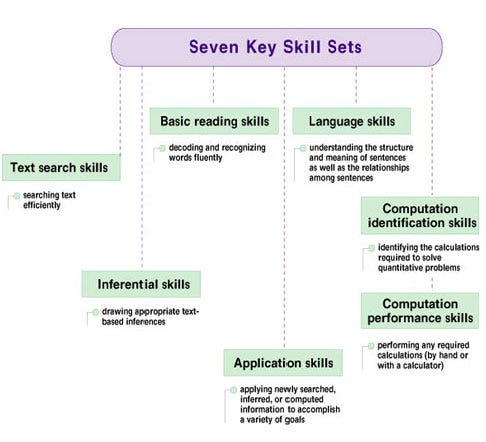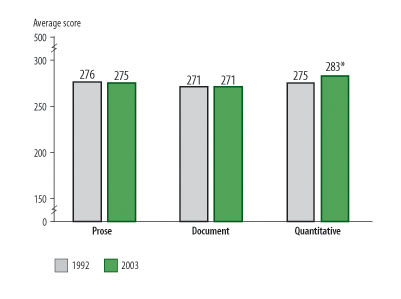The imagined past, TL;DR
Really, this is too long, and not worth reading. Trust me on that.
The only reason I'm posting it is to get it out of my Drafts list because I'm otherwise going to spend another ten hours adding to it, and life's too short, and this topic was interesting enough to start, but not interesting enough to really finish. And by not interesting enough to finish I mean I've got some half-finished thoughts and incomplete sentences somewhere, and I'm not even going to read this to find them. I'm just, like I said, going to hit the Publish button and move on.
Probably you should to.
TL;DR
Don't say I didn't warn you.
I'm enrolled in a colloquy, titled Examining Public discourse in the Age of Technology, ref here.
One of the books that we're discussing, Amusing Ourselves to Death by Neil Postman (link on Wikipedia) argues that our public discourse has been dumbed down by the media; in the old days people listened to debates by articulate individuals. Now we have sound bites.
Postman describes the Lincoln Douglas debates. They were hours long. The language was complex. The arguments were subtle. And people were willing to listen, for hours, to such an intellectually demanding performances. And today we have sound-bites.
He balances his account:
"It would be false, however, to give the impression that these 1858 audiences were models of intellectual propriety. All of the Lincoln-Douglas debates were conducted amid a carnival-like atmosphere. Bands played (though not during the debates), hawkers sold their wares, children romped, liquor was available. These were important social events as well as rhetorical performances, but this did not trivialize them."
I won't trivialize them either, but I won't romanticize them, which I think he is doing. There are people, today, who listen to "Meet the Press" and "Face the Nation" and other "long form" news shows every weekend, and get their news from PBS News Hour (formerly MacNeil Lehrer report). There are many such people, but we know they are unrepresentative of the public at large.
Likewise, I think that the Lincoln-Douglas debate listeners are an unrepresentative group.
Were people in the 1850s more literate than today?
Some people think that literacy has declined because of the insidious effects of Television and now Facebook and Twitter. But the facts suggest otherwise, and I think this is part of a pattern of romanticizing the imagined past.
Want to guess the level of literacy in 1858 when the debates were held? Here's a clue: from the website of the US Government's National Center for Education Statistics' 120 Years of Literacy page:
Percentage of persons 14 years old and over who were illiterate (unable to read or write in any language), by race and nativity: 1870 to 1979YearTotalWhiteBlack and otherTotalNativeForeign-born187020.011.5––79.9188017.09.48.712.070.0189013.37.76.213.156.8190010.76.24.612.944.519107.75.03.012.730.519206.04.02.013.123.019304.33.01.610.816.419402.92.01.19.011.519472.71.8––11.019503.2––––19522.51.8––10.219592.21.6––7.519691.00.7––3.6 *19790.60.4––1.6 ** Based on black population only
SOURCE: U.S. Department of Commerce, Bureau of the Census, Historical Statistics of the United States, Colonial Times to 1970; and Current Population Reports, Series P-23, Ancestry and Language in the United States: November 1979. (This table was prepared in September 1992.)
Only 0.6 percent of the public illiterate in 1979? What about people who are functionally illiterate? People who can read words, but can't understand much more than "Run, Spot, run!"
They comment:
Today, illiteracy is a different issue than in earlier years. The more recent focus on illiteracy has centered on functional literacy, which addresses the issue of whether a person's educational level is sufficient to function in a modern society. The earlier surveys of illiteracy examined a very fundamental level of reading and writing. The percent of illiteracy, according to earlier measurement methods, was less than 1 percent of persons 14 years old and over in 1979
So what can the NCES tell us about functional literacy, today? Are things really getting worse? Well, yes, and no.
New England was peopled by literate people who created a culture that valued education for themselves--and for everyone else. In the North society made sure that everyone had a chance to gain a good education. Literacy in New England was in the high 90% early in the country's history. It's quite possible that literacy in New England has declined over time, but it's unlikely that it's declined across the entire country.
The South was founded by literate people, who valued literacy for themselves, but not for others. It was peopled by slaves and indentured servants who were denied education. The culture that was created did not value education as highly as in New England and the rest of the North.
I was unable to find anything that made clear comparisons between the 1800s and the present age, but did find a recent study done by the NCES showing that literacy is not declining, despite TV. The study results are here. (And related pages. Everything is there, including their methodology and data set).
But in summary:
They compare literacy at two points in time, 1992 and 2003, and identify a set of literacy skills, which they organize as follows:

They then produce summaries of three kinds of literacy, which they call Prose, Document, and Quantitative Literacy. The criteria are here.

The graph shows that Prose and Document are unchanged, and Quantitative is up during the ten year period studied.
Breaking down Prose Literacy we see that roughly half of today's population is Intermediate or above. The criteria for Intermediate Prose literacy are:
reading and understanding moderately dense, less commonplace prose texts as well as summarizing, making simple inferences, determining cause and effect, and recognizing the author’s purpose
For Proficient Prose Literacy the criteria are:
reading lengthy, complex, abstract prose texts as well as synthesizing information and making complex inferences

While I have not found data
What is the difference between someone who has achieved basic literacy and one who has achieved a greater degree of literacy?
It seems to me that once you've learned to make out words and sentences--that is, achieved Basic Literacy--that you can read anything that's put before you--that is, you can look the words and make the sounds. But making the sounds for a word does not mean that you understand it. And understanding a word does not mean that you can understand a compound sentence containing the word. For that you need experience with such sentences. And that does not mean that you understand a complex argument of which the sentence is a part.
Understanding starts with vocabulary. In everyday speech we use a much smaller vocabulary than in formal speech and in formal speech a smaller vocabulary than in formal writing. It's possible that everyday speech in the 1800s was more refined than it is today, but I see no reason to believe that that is true. It's possible that an illiterate person might acquire a large vocabulary by spending substantial time listening to learned and articulate people, but again I think it's unlikely to be true for most people. Most people learn most new words by reading.
Assuming that the historical literacy numbers are approximately correct, we have 20% of the population completely illiterate. We don't know what part of the population was what's now called "proficient" but I'm doubtful that the other 80% were. Most people of that time who went to school, stopped in the eighth grade and only the very wealthy had the leisure time that we had as kids--time that I will guess many of us spent reading.
I wouldn't doubt that the people of that day, who today might watch "Meet the Press," turned out for the Debates, given that it was a social occasion and given that there wasn't a lot else going on in that town on that day.
I love the world we live in. I love the Internet. I think that TV news is a phase we've been through and while some of us are still caught in the aberration that it represents, many of us have moved on.
Facebook is a common such issue. I think there is an enormous amount of really, really stupid stuff on Facebook.
, but there's also some intelligent discussion, and more frequently pointers to interesting short- and long-form material to argue a point of view. A book I read (whose name I will recover and send you later) pointed out that 100 years ago people read newspapers and wrote very, very little. Most people wrote a few letters a week, if that. Today the amount of material produced is enormous.
People are writing. My middle daughter posts regularly on Facebook, mostly amusing and silly things. She's got hundreds of people "friended" to her. And every once in a while she'll post something like this (I've removed the names and the links to protect the innocent)
A number of years ago, my Mom's best friend Tom (link to Tom's memorial page on the Internet) passed away. I've never been to a memorial service like his. The church was *packed* with people. I can't remember exact words that were spoken but I remember clearly what I was thinking through my tears. I was thinking, "I really hope I live like Tom did."
I hope that like Tom, at my memorial service, the room is filled with people sharing stories of how I opened my home to them, held fun parties in my house and introduced them to new, fun and interesting people. I hope my friends tell stories of how I would do anything for them, no matter how big or small. And most of all, I hope my children get up and tell stories about how the things I loved have become things they love - of how I taught them to appreciate travel, food (and cooking) and adventure (Adam (Link to FB page of Adam, one of Tom's sons) need to work on the sailing part... ;))
I remember thinking that day, that after you leave this earth all that is left of you is memories... so I'd better get busy making some good ones.
This Christmas was awesome. On top of all the sweet moments with the kids, my husband was incredibly thoughtful so I had a few surprises of my own. Of the gifts I got yesterday, two of my favorites came from two of my "daughters" who took the time to make me a gift/write me a card that reflected on our relationship. Reading them again this morning took me right back to Tom's service again.(Link to online record of the service)
I place such a high value on the relationships in my life. And I am so incredibly grateful for my friends and family who have been an amazing support to me this crazy year.
something like this (I've removed the names and the links to protect the innocent)
